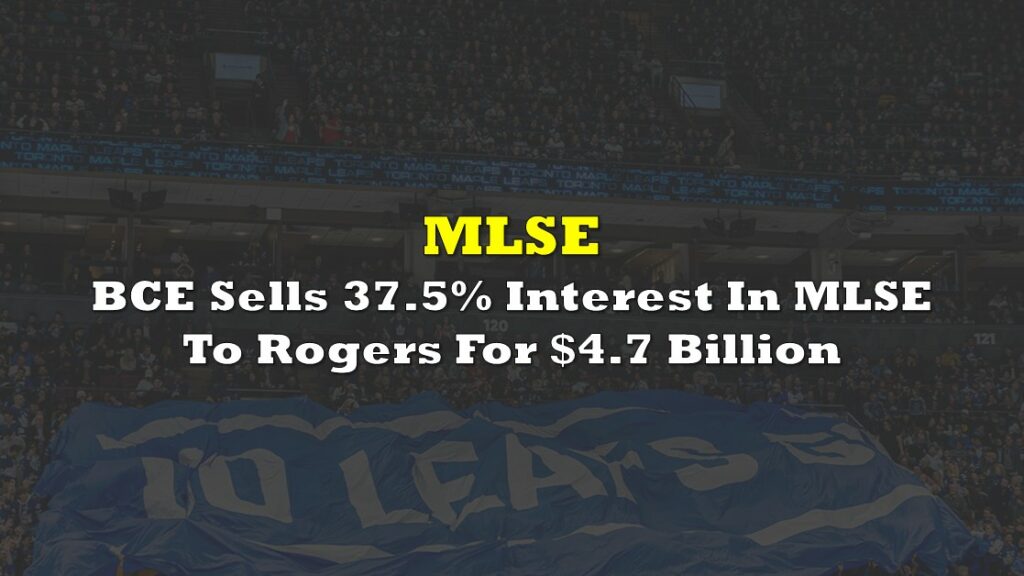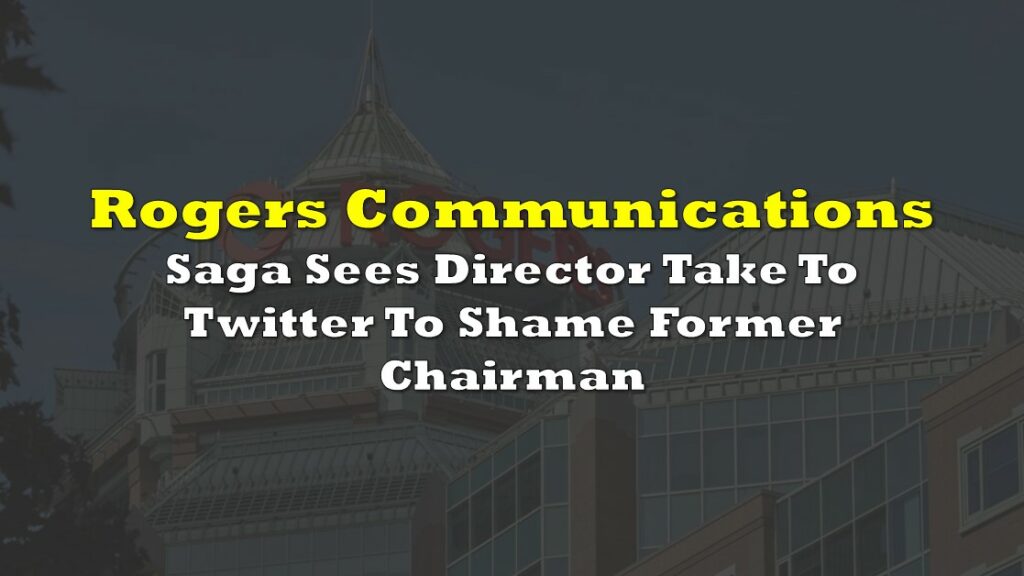The Competition Tribunal is dismissing the case put forth by the Competition Bureau to challenge the pending Rogers Communications (TSX: RCI.B) and Shaw Communications Inc. (TSX: SJR) merger, clearing another hurdle for the 20-month long deal to push through.
“The Tribunal has determined that the proposed transactions and ancillary agreements comprising the arrangement are not likely to prevent or lessen competition substantially,” the tribunal said in its statement.
Among the proposed changes to address the competition concerns, Shaw agreed to first divest its subsidiary Freedom Mobile to Videotron, a subsidiary of Quebecor (TSX: QBR.B), in a $2.85-billion deal. Only then will Rogers be allowed to acquire the remainder of Shaw.
The bureau has commented earlier that the proposed Freedom acquisition is “not an effective remedy” to answer the competition issues it has been raising. The sale, the bureau said, would make Freedom “a subsequently weaker competitor,” and wouldn’t address the main contention that Shaw provides growing competition against Rogers in Alberta and British Columbia–one that would be consolidated should the Rogers-Shaw merger push through.
However, the tribunal believes that the Rogers-Shaw merger and Freedom divestiture is “not likely to result in materially higher prices,” and is, “unlikely to result in materially lower levels of non-price dimensions of competition,” which includes service, quality, variety, and innovation.
The tribunal’s decision follows its own comments during the case proceedings that the network outage suffered by Rogers subscribers in July 2022 is a relevant factor to consider in approving the proposed business combination.
READ: Rogers Outage Is Relevant To The Pending Shaw Merger, Says Competition Tribunal
In its deliberation, the tribunal has also concluded that it doesn’t agree with the bureau’s arguments, including that the Freedom acquisition “would result in Freedom being a less effective competitor,” that the Shaw acquisition “would likely give rise to anti-competitive unilateral effects,” and that both transactions would consolidate market power for Rogers, BCE, and TELUS Communications.
“It bears underscoring that there will continue to be four strong competitors in the wireless markets in Alberta and British Columbia, namely, Bell, Telus, Rogers and Videotron, just as there is today. Videotron’s entry into those markets will likely ensure that competition and innovation remain robust,” the tribunal added.
According to the bureau’s application to the tribunal, eliminating Shaw would dramatically boost Rogers’ national market share, which is already the greatest among the Big Three, as well as its market dominance. Furthermore, the Bureau claimed that removing a strong regional competitor like Shaw will likely result in significantly higher cellphone pricing for consumers.
The bureau maintains this view as Commissioner of Competition Matthew Boswell said they are considering their next steps.
“I am very disappointed that the Tribunal is dismissing our application to block the merger between Rogers and Shaw. We are carefully considering our next steps,” Boswell said.
We are aware that the Competition Tribunal intends to dismiss our application to block Rogers-Shaw.
— Competition Bureau Canada (@CompBureau) December 30, 2022
We are very disappointed and we are carefully considering our next steps.
Our statement: https://t.co/C3Xt41k7it pic.twitter.com/nPcPetoYJ3
The now $15-billion merger (from $26 billion) between Rogers and Shaw is being blocked by the commission for alleged anti-competition practices. The Canadian communications firms earlier in the year agreed to put the transaction on hold until the commission’s issues have been resolved.
“We are pleased with the favourable decision from the Competition Tribunal and thank the Tribunal members for their work in rendering a swift decision. This is an important milestone in the regulatory process and moves us one step closer to closing a series of transformative transactions proposed by Rogers, Shaw, and Quebecor,” the two companies said in a combined statement.
With the tribunal’s approval, the only regulatory hurdle that remains for Rogers and Shaw is that from the Minister of Innovation, Science and Industry, including the proposal for Videotron to acquire Freedom. Furthermore, Rogers, Shaw, and the Shaw Family Living Trust have agreed to extend the Rogers-Shaw Transaction’s outside date to January 31, 2023.
Rogers outage
The country-wide Rogers network outage earlier this year affected millions of Canadian users, small businesses, and smaller internet service providers. Internet access was said to be down to 75% of normal levels across the country by network monitor NetBlocks.
The outage has also led to Rogers replacing its chief technology officer, as well as promising to spend $10 billion on network upgrades and will spend $150 million in total to compensate customers.
While there were strides made by the communications giant to compensate the outage, a consolidation of Rogers and Shaw’s networks suffering a similar halt to operations could significantly impact a huge part of the country’s communication systems.
Rogers wireless, cable, and internet customers across the country had difficulty connecting to their services following the outage. The service has an impact on brands such as Fido, as well as services such as travel and banking networks, as well as emergency services that are not directly tied to the corporation.
Outside of its immediate customers, the outage at the time had far-reaching consequences, with Interac encountering problems completing transactions across the country. As a result, cash and gift cards were king at various places across Canada, including Tim Hortons and the Confederation Bridge, which connects Prince Edward Island to the mainland.
READ: Rogers Canada-Wide Outage Demonstrates Why A Merger With Shaw Is Probably A Bad Idea
The Canadian Anti-Monopoly Project (CAMP) commented on the tribunal’s decision, characterizing the “disappointing outcome” as rushed.
“Though the decision is disappointing, it is ultimately a product of Canada’s permissive and outdated merger laws,” said Keldon Bester, CAMP co-founder. “It is also disheartening to see the Tribunal rush such a critical decision for Canadians at the request of the merging parties.”
A favourable decision for Rogers-Shaw enriches a small handful of individuals at the expense of everyday Canadians. Canada needs to reform the law that made this merger possible. https://t.co/PExwCJaxhD
— Keldon Bester (@KeldonB) December 30, 2022
The tribunal also said that it will not address competition in wireline services because the bureau “did not allege that Rogers’ acquisition of Shaw’s wireline business would likely prevent or lessen competition.” In fiscal 2021, the wireline business generated approximately 83% of Shaw’s overall revenues.
The recent development is another punctuation in the long-standing saga in the Rogers business.
Rogers Communications Class B Shares last traded at $60.98 on the TSX.
Information for this briefing was found via the sources mentioned. The author has no securities or affiliations related to this organization. Not a recommendation to buy or sell. Always do additional research and consult a professional before purchasing a security. The author holds no licenses.









